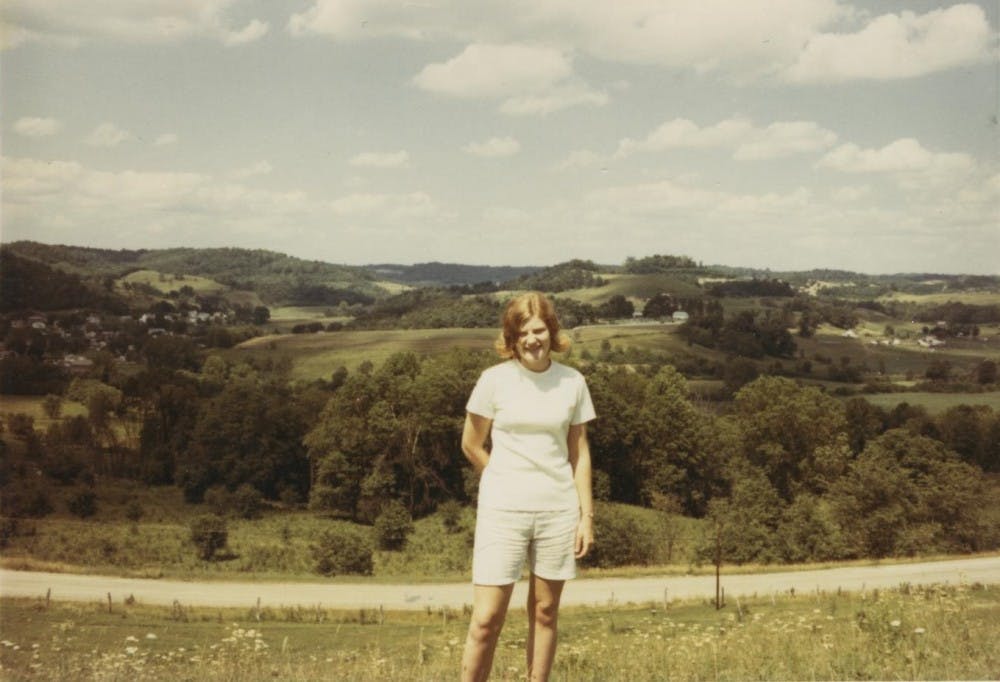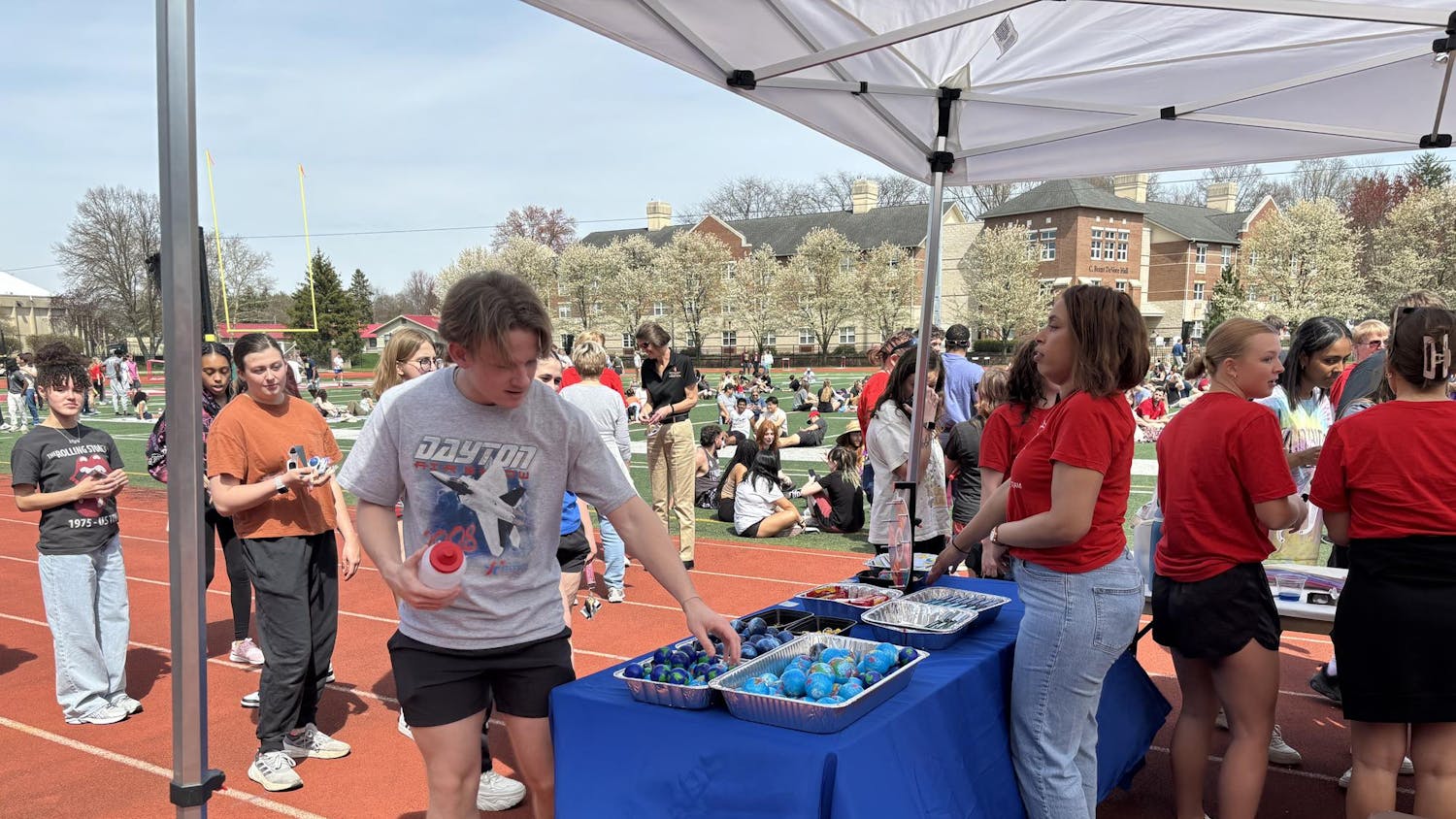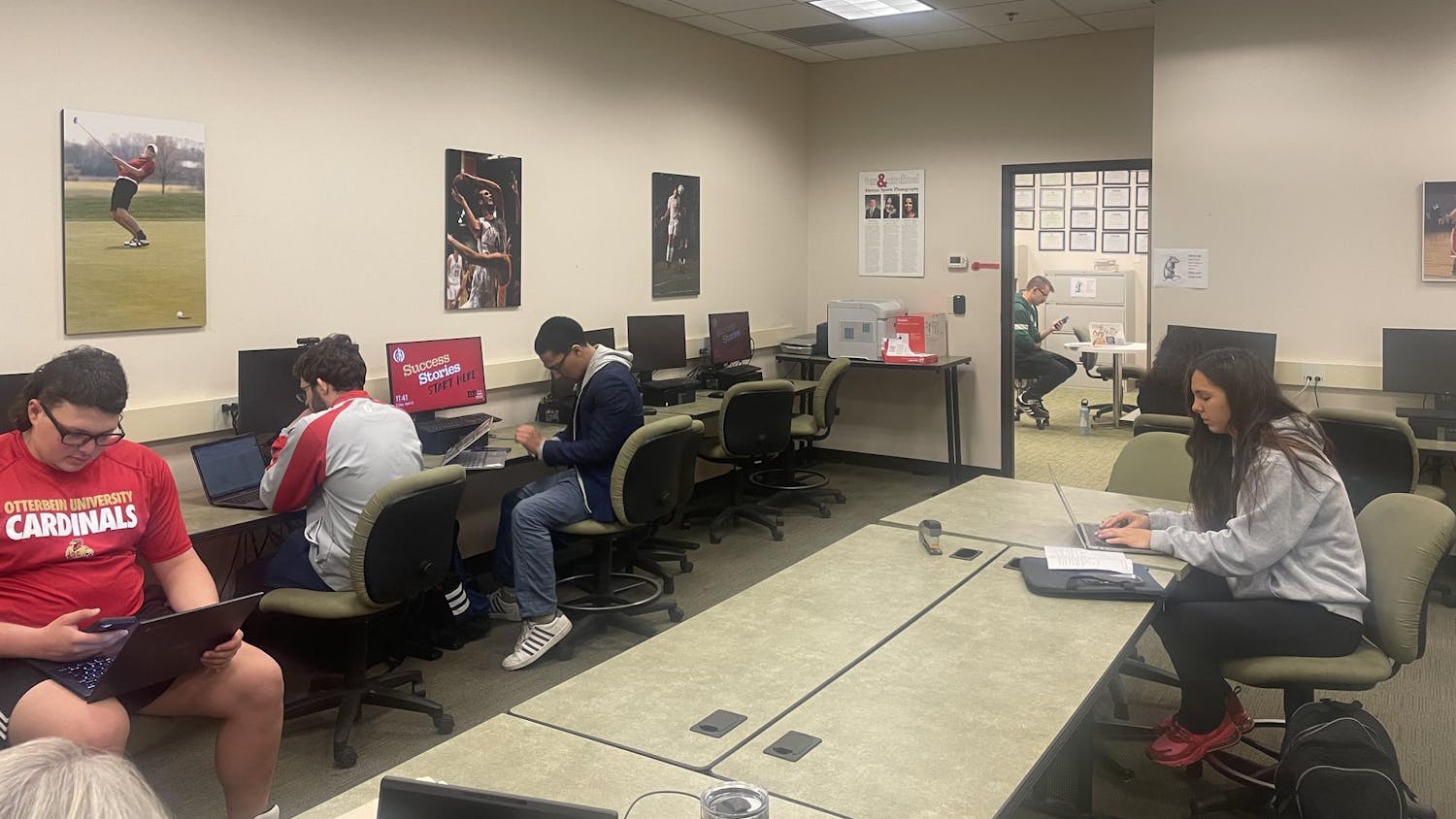Next fall marks Beth Daugherty’s 30th year of teaching here at Otterbein. As an English professor, she has seen many students beginning their college careers. Many of them are excited to leave the shadow of their old hometowns behind. What they don’t know is that 45 years ago, their professor was feeling that same way.
In the fall of 1968 Daugherty arrived on the campus of Mount Union College, a little liberal arts college in Alliance, Ohio. A small-town girl herself, she was excited to begin her life away from home.
“I felt as though I had found someplace where I belonged,” she said. “Lots of other bright kids around, it was no longer unusual to be smart or to want to do well in school.”
College wasn’t all perfect for Daugherty, as her classes were hard. Having been an honor student in high school, the transition was hard.
“I got a C in freshman composition,” she said. “I got some B’s along the way too.”
Daugherty went to college knowing she wanted to study English, but grades put everything into question. She felt that to be successful she must excel. That feeling turned into a compulsion to be perfect.
“It was me feeling like I was always three or four steps below everybody else,” she said.
These feelings that she had were caused by a shadow that haunted her mind. The shadow was her home town.
Nestled in the hills of southeastern Ohio is Quaker City, one of many poor mining towns that dot Appalachia’s mountainous terrain. Daugherty spent her childhood here, and it was a place she would come to both love and loathe.
The daughter of two teachers and the oldest of three girls, her family had a modest income, but she was not blind to poverty. “We were not poor, but the area was poor,” she said.
Her father, Red Rigel, remembers her as being a very inquisitive child and one who loved to read. Both he and his wife wanted to teach their daughters that they were their own person.
“The biggest thing we tried to instill in our girls was for them to think for themselves,” he said.
She was a hybrid between a tomboy and a bookworm, loving to read and play baseball. Her desire for knowledge, though, was stifled by the small town and its lack of opportunities.
“We did have an actual library and I was real lucky because the librarian let me read anything,” Daugherty said. The library that she loved, however, closed and was replaced by a bookmobile. The selection and quality were never the same.
To her, the culture of the town was not one that supported intellectualism.
“Intellectual things were mocked,” she said. “I was made fun of because I cared to get A’s.”
Her dislike grew into a compulsion to excel. She also tried to distance herself from her old home, and all the stereotypes associated with it.
“For a long time I was working very hard not to be Appalachian,” Daugherty said.
This was also a time in America when Appalachians and the region got more attention. The media painted the region and its people as being backwards and ignorant. Daugherty said that jokes made at the expense of the Appalachian people were common. This only made her more conscious of her roots, and drove her to prove herself further.
After she graduated from college she got married. She and her husband moved back to her hometown where both found teaching jobs in local schools.
“I saw bright, talented kids trapped by circumstances,” she said. “I liked my students and wanted to help open up the world for them, to give them a glimpse of something beyond those circumstances, but many were poor or part of non-supportive, to say the least, or struggling families.”
Wanting to teach at the college level, she left teaching high school after a few years to get her doctorate. Daugherty decided to go to Rice University in Houston. The environment around her at Rice was a culture shock to her, never having lived in a large city or that far from home before.
“Rice is an elite school. I was amazed I had been accepted and learned long after I graduated that they had taken a chance on me and my small Ohio college degree,” she said. “Mount Union was a good school, but certainly not an elite one. I’m pretty sure I could not have gotten into Rice as an undergrad.”
Entering graduate school was much like the beginning of college all over again, feeling behind. Daugherty still had the drive for success, but now she sat at a desk between people who had come from schools like Harvard, Yale and Johns Hopkins.
“I had to work very hard to do well, to catch up once more,” she said, “Just like I had when I went from high school to college, but even tougher.”
It was in one of her seminars at Rice that she would discover her love for Virginia Woolf, one of the foremost English modernist writers. She felt that Woolf captured in words what internal life felt like.
“Our minds are not nearly as coherent as Woolf’s prose, but somehow, she captures the interior,” she said. “How we’re a mass of thoughts, emotions, questions, ramblings, contradictions.”
She also loves Woolf because the author did not discriminate when it came to the audiences she wrote for.
“It seems as though her essays welcome everyone into the conversation about literature,” Daugherty said. “That even if you don’t know all her references or have read everything she has, you don’t feel, as a reader, that she’s looking down at you.”
The connection Daugherty felt was deep enough that she decided to write her dissertation on the author, as well as many other articles.
Hannah Biggs, a 2012 graduate of Otterbein who was a close student of Daugherty’s, said that while researching Woolf at the British Library she discovered several articles written by the Professor.
The British Library is one of the most renowned and largest libraries in the world. According to the library’s websites, they have over 150 million items, with three million more added every year.
“She is the second hit for number of scholarly works written about Woolf,” Biggs said.
After graduate school she moved back to Ohio. Daugherty did some freelance editing as well as being an adjunct professor at Ohio State University and Ohio Wesleyan University. In the fall of 1984 she became an Assistant Professor of English at Otterbein, attaining her full professorship in 1996.
As a professor, she began to become more and more interested in Appalachian literature, and would teach her first class on the subject in 2001. She has also taught a Senior Year Experience class, Appalachia in the City, in which students study the historic context of Appalachians, the region’s resources, the past migration of Appalachians to cities and the current experiences of Appalachians in the cities.
She says that understanding the culture of her hometown and Appalachia has been a process.
“Learning about many diverse groups and applying that knowledge to my group, reading the literature, hearing speakers, and of course, the more you have to teach something, the more research you do, the more you understand,” she said. “What I was reading about the area, about stereotypes, about cultural forces, about historical inequities and exploitation, began to come home to me. It explained a lot.”






